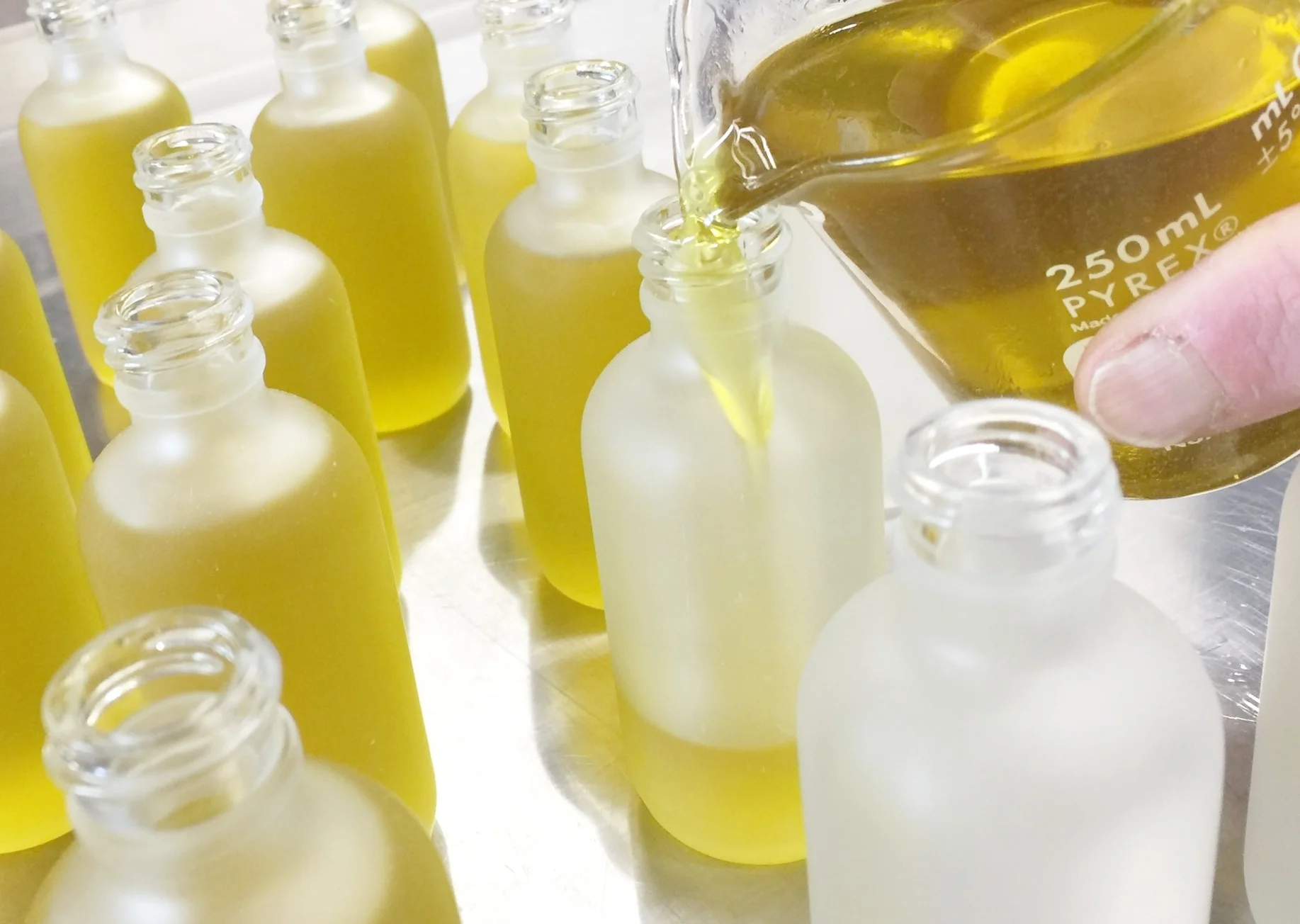Since ancient times…
People have been using plant and animal oils and fats to condition, heal, and treat skin disorders since ancient times. They all contain nutrients that are readily absorbed and incorporated into the skin's cell structure. All skin types at any age benefit from conditioning with facial treatment oils. Even those with oily skin and those prone to clogged pores and outbreaks can benefit from the right facial oils.
The properties of plant oils and seed butters we will evaluate here are "occlusive," "emollient," and "humectant."
Inside or out - How does skin become dehydrated?
The primary function of our skin is that of a biological barrier or "tight junction." A "tight junction" keeps infections and bacteria out and moisture in. Skin becomes dehydrated at the surface due to the evaporation of fluids. This often leads to irritation and dry skin. If skin becomes dry and irritated, this barrier becomes compromised. The more fluids we lose to evaporation, the more potential damage is being done, leading to further irritation and even more fluid loss.
This cycle leads us to rely more and more on moisturizers and lotions, which can further exacerbate the situation. This can lead to more problems, such as outbreaks, as bacteria can more easily penetrate the "tight junction." These problems can further reduce the ability of our skin to retain its structure, making it more vulnerable to damaging external factors.
These things occur more often in harsh, dry climates than in humid ones, but they also happen as we age due to a progressive reduction in skin barrier functions; over time, your skin gets thinner, produces fewer skin oils, and is less capable of retaining moisture. Women experience this more than men, as men have more skin oils and thicker skin to begin with, so they can get away with minimal skincare. Dry skin and wrinkles don't catch up with the guys until much later in life. Women suffer more from dry skin and adult acne, leading to the overuse of potentially damaging products, making the skin thinner and weaker as time goes on.
Thankfully, It is possible to actually help maintain, heal, and restore healthy skin by applying nutrient-dense plant oils with the right properties in the RIGHT WAY!!
NOTE: Skin dehydration is very rarely caused by not drinking enough water. In most cases, if your skin is dehydrated due to a lack of water consumption, you would be experiencing systemic symptoms beyond the scope of this discussion. That said, skin becomes dehydrated at the surface.
PROPERTIES OF PLANT OILS
"Occlusive" oils form a protective barrier on your skin, helping to maintain the primary "tight junction" function mentioned above. Occlusive-rich oils are very nourishing to our skin and work by trapping existing moisture in, not by adding it, as noted above; that is the job of the humectant. Occlusive oils work well for those with normal to dry skin by helping retain moisture already present but can cause problems for those with very dry or dehydrated skin. It is important to note that if your skin is dehydrated applying an occlusive oil is not actually adding moisture back into your skin.
"Humectants" work by pulling water (moisture) to the surface of the skin from somewhere, either the humidity in the air or from the cells underlying the epidermis. Neither water nor oils are humectants. Powerful natural humectants include glycerin, seaweed, aloe vera gel, hyaluronic acid, and honey.
"Emollient" oils lubricate the skin and fill in the gaps between skin cells, making it feel smoother. Emolliency reduces evaporation and helps keep skin soft and pliable. All fruit, nut, and seed oils have both emollient and occlusive properties, but some are considered to have more emollient properties than others.
If you apply oils to dry skin without getting the water part right, you trap zero moisture under the skin, leaving you with, well, zero moisture and still dehydrated skin with an oil layer on top of it.
This is where the humectant part comes in, the vital water part that often gets overlooked when applying facial oils.
Water itself is NOT considered a humectant, but it does function as one when using facial oils correctly...
THE ROLE OF H20: DEWY SOFT OR GREASY?
“Dry skin (type) is actually low in water, not in oil ... water, not oil, is the first ingredient you need to add moisture back into (dehyrdated) skin.”
Many people, myself included, find that applying oils to dry skin does not help because the oils tend to sit on the surface for a long time before soaking in. More mature skin has a much harder time absorbing oils than younger skin.
Applying oils correctly is vital to helping our skin cope with environmental stressors. In fact proper application of your facial oils might be the most important step!
